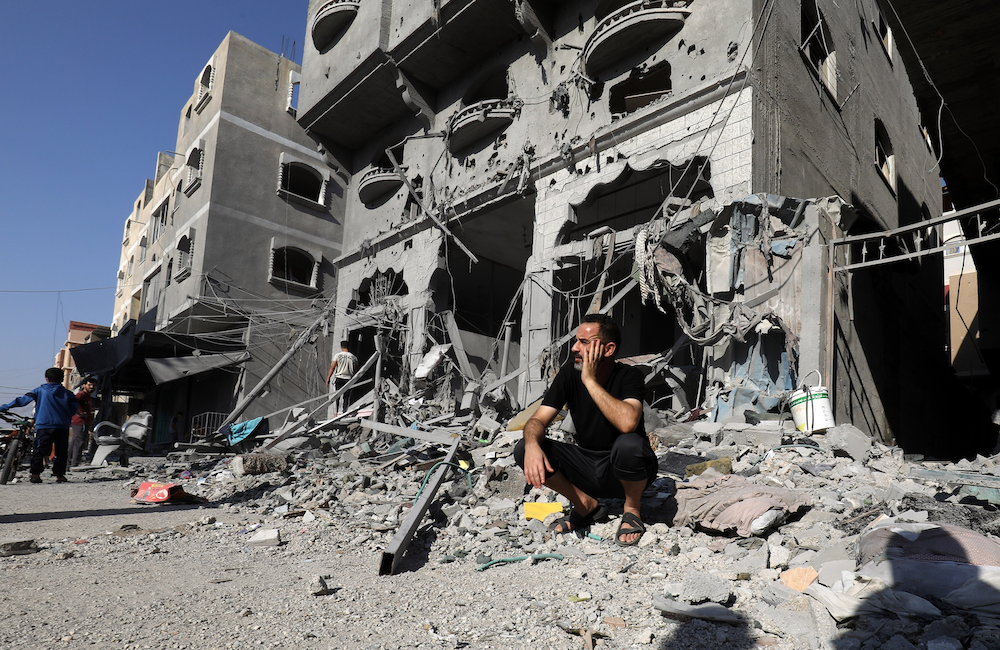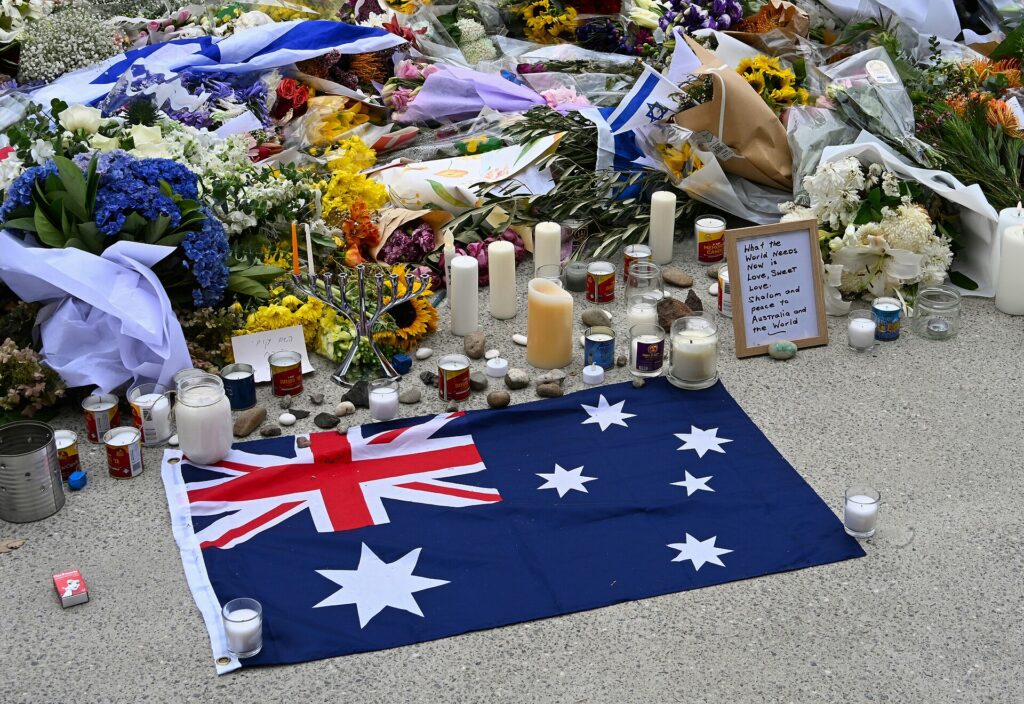IN THE MEDIA
War is not a war crime
November 3, 2023 | Oved Lobel

Canberra Times – 3 November 2023
Words have specific meanings – especially when interpreting the law. Of course, you wouldn’t know this based on the ranting of anti-Israel activists, who constantly throw around terms like “war crimes”, “collective punishment” and “genocide”. Naturally, these terms are only ever directed at Israel, even though Hamas commits actual war crimes incessantly – including each of the more than 7,000 rockets fired indiscriminately at Israeli civilians in the last three weeks, not to mention the entirety of the October 7 pogrom.
The purpose of International Humanitarian Law (IHL), and specifically the 1949 Fourth Geneva Convention concerning protection of civilians in wartime, is to mitigate to the greatest extent possible the impact of war on civilians – but without crippling the ability of nations to mount legitimate military operations. These rules are largely adhered to solely by Western countries, including Israel.
But war is war, a brutal, bloody, terrifying affair that involves mass death and destruction that nowadays anyone can watch at a granular and stomach-churning level. Every child pulled from the rubble, every neighbourhood destroyed, feels like it ought to be a war crime. However, context and intent, not simply outcomes, are everything in IHL. The phrase “war crime” does not simply mean something which horrifies or evokes intense emotion and empathy.
The three most common concepts abused by anti-Israel activists are “proportionality”, “collective punishment” and “genocide”. Everyone needs to understand precisely what these terms actually mean.
Proportionality is a simple concept in IHL, prohibiting attacks against legitimate military targets “expected to cause incidental loss of civilian life, injury to civilians, damage to civilian objects, or a combination thereof, which would be excessive in relation to the concrete and direct military advantage anticipated.”
The concept has absolutely nothing to do, as anti-Israel activists and even some politicians seem to believe when they refer to Israel’s “disproportionate” responses, with comparing the overall scope and deadliness of a military response with the scope and deadliness of the terror provocation that it is retaliating against. Only those who know the precise intelligence that went into selecting a particular target can judge the proportionality of an action, no matter how devastating it might seem on camera.
Collective punishment, a concept derived from Article 33 of the Fourth Geneva Convention, is similarly inapplicable to Israel’s conduct in Gaza. Hamas – by virtue of building hundreds of kilometers of military tunnels under and throughout residential areas of Gaza, using civilian objects buildings from schools and hospitals to UN schools and mosques as headquarters and weapons depots and firing from civilian areas – has turned much of Gaza into a legitimate military target. Attacking legitimate military targets is never “collective punishment” under IHL.
While proportionality rules still apply, the destruction and civilian deaths in Israel’s strikes in Gaza are legally byproducts of Hamas’ decision to embed itself within the civilian population.
Furthermore, IHL does not prohibit sieges, a legal tool of warfare, provided the siege doesn’t violate IHL in other respects and isn’t geared towards intentionally starving the civilian population, which is obviously not the case in Gaza. Nor does Israel have any obligation under IHL to provide electricity to enemy territory and thus help its enemy’s war efforts, an absurd yet seemingly widely held position.
Finally, there is “genocide” – or rather, there isn’t genocide. This is an especially vile and ludicrous claim given that the Palestinian population has essentially doubled in the past 30 years. Moreover, compared to past similar conflicts elsewhere, Palestinian civilian casualties – of which there are no genuine estimates, only Hamas’ unreliable and likely fabricated counts which do not even try to differentiate between militants and civilians – actually appear moderate relative to the amount of ordnance Israel has dropped in the densely populated environment of Gaza.
People die in war, often many people, but to be considered a violation of the Genocide Convention, the killing must be done “with intent to destroy, in whole or in part, a national, ethnical, racial or religious group.” Obviously, Israel has no such intent – genocidal countries do not plead for civilian evacuations or give prior warning before individual strikes when possible. The same cannot be said of Hamas, whose founding charter, actions and rhetoric make quite clear has always been a genocidal movement.
This war was created by the aggression and war crimes of Hamas, which continues to hold over 200 Israeli hostages. Israel has the right under the UN charter to respond in self-defence. This it will do, acting within the bounds of actual IHL, not the fantasy version touted by activists that effectively amounts to arguing that all actual war is illegal, especially when it’s Israel that’s defending itself.
War is hellish and we are all going to continue seeing horrendous images and reading heart-breaking reports from Gaza in the coming days and weeks. But not every horror of war is a war crime, nor every large number of deaths a genocide.
Oved Lobel is a Policy Analyst at the Australia/Israel & Jewish Affairs Council (AIJAC).
Tags: Gaza, Hamas, Israel, War Crimes, international law





